An up-close look at a Common Rainbow Snake. Photo by ©Dane Conley
A Common Rainbow Snake on the forest floor. Photo by ©Ben Stegenga
Fact File
Scientific Name: Farancia erytrogramma erytrogramma
Classification: Reptilia, Order Squamata, Family Colubridae
Conservation Status:
- Species of Greatest Conservation Need-Tier 4a on the Virginia Wildlife Action Plan
Size: Up to 68 inches
Life Span: About 20 years
Distribution
The Common Rainbow Snake inhabits rivers, ditches, and blackwater swamps of the Coastal Plain region of Virginia. It can be occasionally found in tidal and brackish marshes.
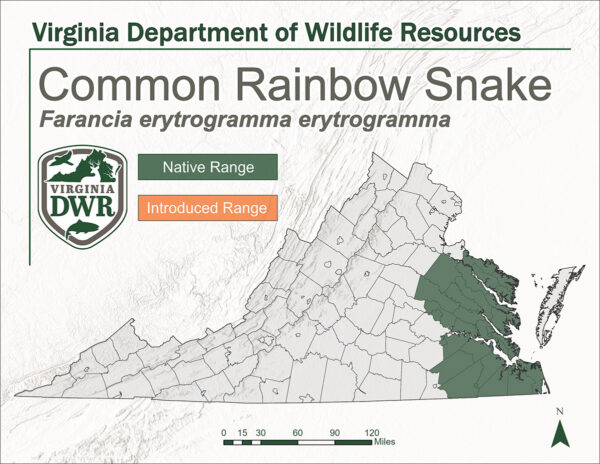
Identifying Characteristics
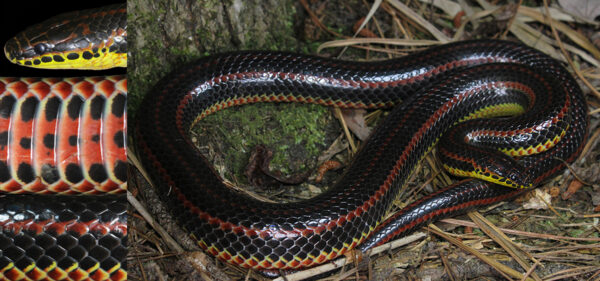
Key identification features of the Common Rainbow Snake. Photos by ©Myles Masterson
- A large, colorful snake with three red stripes
- A black to blueish body
- Belly is red to yellow with two rows of black spots
- Chin and throat are yellow
- Scales are relatively smooth
- Tail is relatively short with a hardened tip
Habitat
The Common Rainbow Snake is both an aquatic and terrestrial snake. They can be found under logs, boards and in rock piles near water. When threatened, a Common Rainbow Snake will coil into a ball and attempt to hide its head. Occasionally found in open land after a heavy rain.
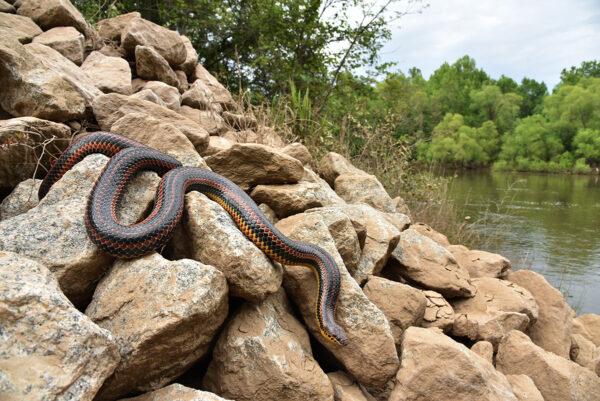
A Common Rainbow Snake at home along the riverbank. Photo by ©Dane Conley
Diet
Juveniles will consume tadpoles, small frogs, salamanders, and eels. As an adult, the Common Rainbow Snake preys nearly exclusively on eels. Prey items are eaten alive and usually swallowed head first.
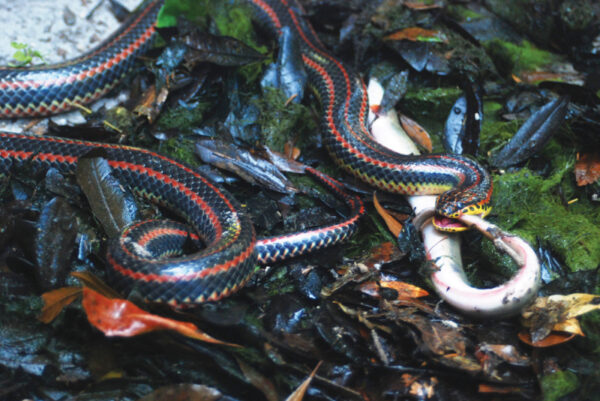
An adult Common Rainbow Snake with a freshly caught American Eel. Photo by ©Ben Stegenga
Reproduction
The Common Rainbow Snake reproduces in July in Virginia, utilizing underground cavities in the sand to deposit eggs. Females lay 20-40 eggs and stay with the nest through the duration of incubation as a means of defense against predation. Young hatch in the fall and overwinter near the nesting site before migrating to more aquatic habitats as juveniles the following year.
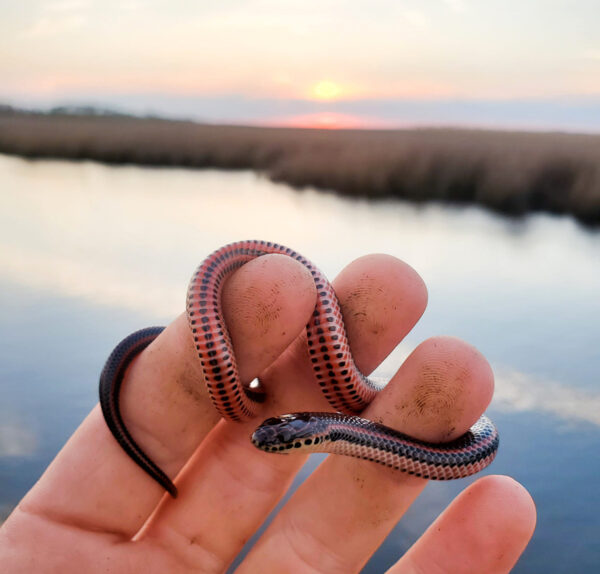
A juvenile Common Rainbow Snake found in the Virginia coastal plain. Photo by ©Myles Masterson
Last updated: August 10, 2025
The Virginia Department of Wildlife Resources Species Profile Database serves as a repository of information for Virginia’s fish and wildlife species. The database is managed and curated by the Wildlife Information and Environmental Services (WIES) program. Species profile data, distribution information, and photography is generated by the Virginia Department of Wildlife Resources, State and Federal agencies, Collection Permittees, and other trusted partners. This product is not suitable for legal, engineering, or surveying use. The Virginia Department of Wildlife Resources does not accept responsibility for any missing data, inaccuracies, or other errors which may exist. In accordance with the terms of service for this product, you agree to this disclaimer.

